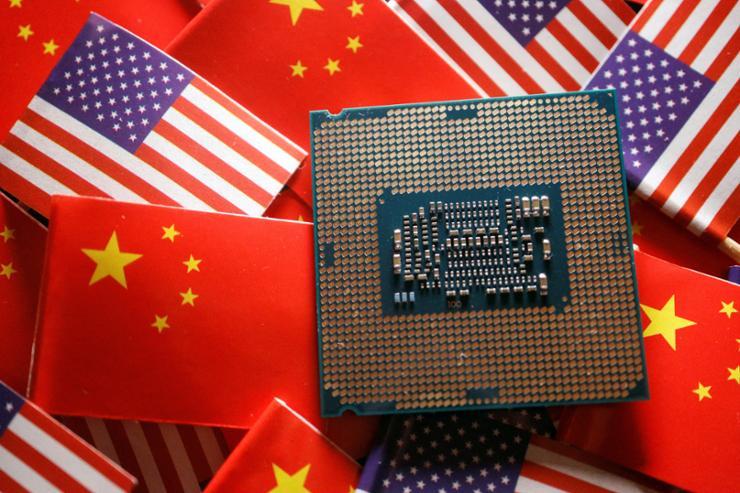U.S. Chip Export Controls May Boost Chinese Tech Progress
In a frank evaluation of the U.S. export restrictions on semiconductor technology, Jensen Huang, CEO of Nvidia, has described these measures as a “misstep,” arguing that they unintentionally expedite China’s progress in semiconductor innovation. His comments during a recent industry conference shed light on the intricate and often unforeseen effects of trade regulations designed to limit China’s access to advanced technologies. as competition for dominance in the semiconductor field escalates, Huang’s observations reflect growing apprehension among tech leaders that such restrictions may not only fall short of their intended goals but could also enhance China’s pursuit of independence in vital technological domains.
This situation prompts critical inquiries regarding the effectiveness of current U.S. policies and their broader implications for global technological rivalry.
Unintended Consequences of U.S. Export Restrictions
The insights shared by Nvidia’s CEO reveal an escalating concern within the technology sector about American export limitations on chip technology. Rather than obstructing China’s ambitions,these controls seem to be spurring rapid growth within its semiconductor industry. Experts contend that by restricting access to state-of-the-art technologies, the United States is inadvertently motivating Chinese companies to intensify their research and development initiatives.
This shift has resulted in meaningful investments aimed at enhancing domestic capabilities,leading to innovations that could potentially rival those produced by Western firms.
- Surge in R&D Funding: With diminished access to American technologies, Chinese enterprises are channeling more funds into developing indigenous solutions.
- Realignment of Global Supply Chains: Businesses are reevaluating their supply chains and forming alternative partnerships which may foster a more self-sufficient Chinese semiconductor sector.
- Global Innovation spillover: As advancements emerge from China’s tech landscape, they may influence other markets worldwide, raising competitive stakes across industries.
| Impact Factor | Status Update |
|---|---|
| Growth Rate of Chinese Semiconductor Market | Sustained expansion driven by increased investment efforts |
| Diminished Dependence on western technology | Potentially declining reliance observed |
Nvidia CEO Advocates for Rethinking Export Policies to Encourage Innovation
nvidia’s leader has recently raised alarms about existing U.S. export policies concerning semiconductors—arguing they might be counterproductive rather than protective. Instead of hindering China’s technological progress as intended,he posits that these measures might actually accelerate it further.
The Nvidia chief stressed the urgent need for a complete reassessment of these export controls so they can effectively safeguard national security while simultaneously fostering innovation and preserving America’s competitive edge in technology sectors.
A revised strategy could encompass:
- cultivating Global Partnerships: Initiating discussions with international allies to establish a unified framework supporting innovation without compromising security interests.
- Pumping Resources into Domestic R&D: Investing considerably in research initiatives within the United States is crucial for maintaining leadership in semiconductors.
- Tweaking Restrictive Measures: Adopting more adaptable export policies that take into account global supply chain complexities.
This appeal highlights an essential aspect amid ongoing debates surrounding tech export regulations—emphasizing an urgent requirement for strategies balancing security concerns with nurturing robust ecosystems conducive to innovation.
Industry Leaders Call for Cooperative Strategies in Semiconductor Market Competition
A growing number of industry figures advocate collaborative approaches as essential tools against fierce competition within the global semiconductor arena. With demand surging alongside supply shortages and geopolitical tensions looming large over markets worldwide; experts argue open interaction among key players can lead towards innovative solutions while enhancing resilience against potential disruptions.
Main proponents stress aligning interests across borders should drive cooperation instead isolationism when addressing challenges faced today!
Critically evaluating current export control frameworks; notable voices—including Nvidia’s CEO—assert such regulations inadvertently fuel rival nations’ growth trajectories concerning chip technologies! They emphasize establishing unity prioritizing shared challenges over nationalistic barriers is paramount moving forward! Stakeholders from diverse sectors must consider policy adjustments promoting investment into research & development while ensuring fair competition prevails throughout this evolving landscape!
Conclusion: Navigating Complexities Ahead
The recent statements made by Nvidia’s head underscore significant worries among industry leaders regarding U.S.-imposed restrictions on chip exports aimed at curbing advancements from China! while designed with good intentions; these measures risk accelerating developments instead stifling them altogether! As geopolitical dynamics continue shifting rapidly—the ramifications extend beyond immediate market reactions potentially reshaping both global supply chains & future trajectories related specifically towards semiconductors themselves! Stakeholders must grapple intricately balancing competing priorities between national security imperatives alongside economic growth aspirations moving forward!




